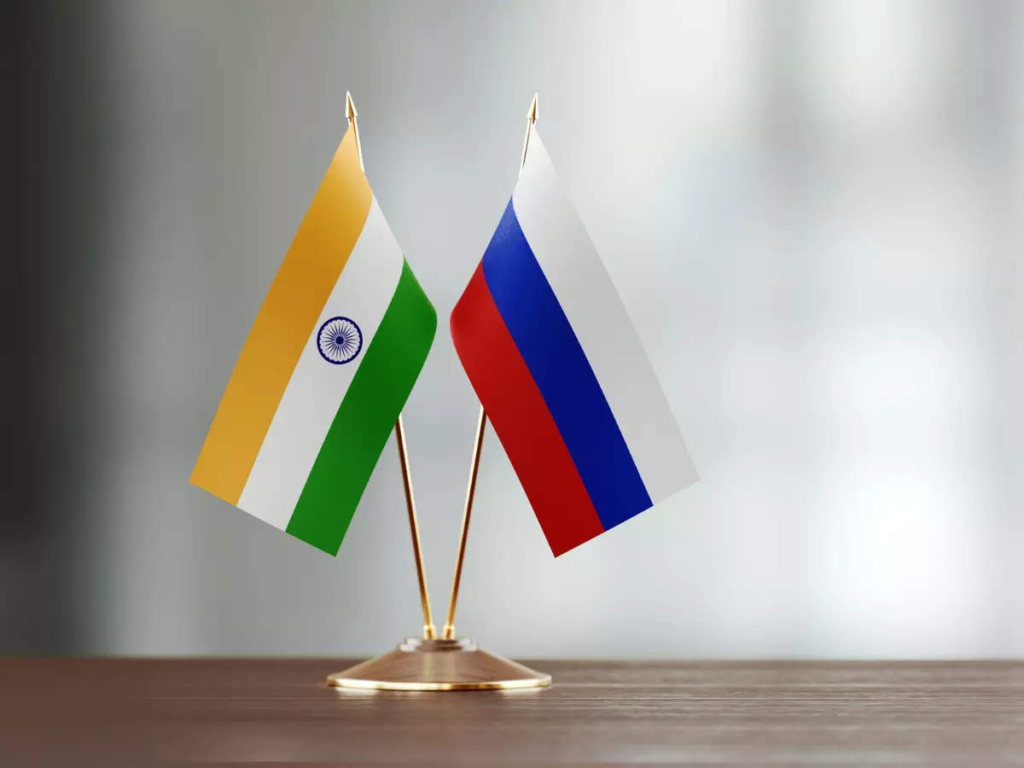Introduction
In an era of geopolitical upheaval and market volatility, India’s crude oil trade with Russia stands as a significant strategic maneuver. Spearheaded by External Affairs Minister S. Jaishankar, India’s decision to engage with Russia highlights a pragmatic approach to energy security and economic stability. This article delves into the intricacies of this trade, its global implications, and the expert opinions shaping this discourse.

Timeline of Key Events and Statements
March 2022: India and Russia initiate discussions to bolster bilateral trade. The focus is on expanding economic cooperation amidst escalating global sanctions against Russia.
June 2022: A major crude oil deal is signed between India and Russia. This agreement ensures favorable pricing for India, crucial amidst the surging global oil prices.
September 2022: S. Jaishankar, India’s External Affairs Minister, defends the crude oil trade with Russia at the UN General Assembly. He emphasizes that India’s decisions are influenced by market conditions rather than geopolitical considerations.
February 2023: India increases its crude oil imports from Russia. This move reflects India’s strategy to stabilize its energy supply amidst global price fluctuations.
August 2023: New agreements are finalized between India and Russia to strengthen their energy partnership, including long-term contracts and joint ventures.
June 2024: India explores further collaboration with Russia in energy investments and joint ventures, demonstrating an ongoing commitment to solidify the bilateral relationship.
Market Conditions Driving India’s Trade Decisions
The volatility in global oil prices, driven by geopolitical conflicts and supply chain disruptions, plays a crucial role in India’s crude oil trade strategy. Securing a stable and cost-effective source of crude oil from Russia allows India to manage its energy requirements effectively and mitigate the impacts of global market fluctuations.
Global Reactions to India’s Oil Trade Policies
India’s continued engagement with Russia has stirred mixed reactions globally. While some view it as a strategic economic decision, others see it as a challenge to the international sanctions imposed on Russia. The diverse opinions highlight the complex balance between national interests and global diplomatic norms.
Impact on India’s Diplomatic Relations
India’s oil trade with Russia impacts its diplomatic relationships globally. By navigating economic and diplomatic considerations, India seeks to maintain its energy security while managing its international standing. This balancing act reflects India’s broader strategy of aligning its economic needs with global political realities.
Economic Benefits of the Crude Oil Trade
India’s crude oil trade with Russia offers significant economic benefits. The favorable pricing and reliable supply of oil contribute to energy security and economic stability. This trade not only supports India’s energy needs but also enhances its negotiating power in the global market.
Future Prospects for India-Russia Oil Trade
The future of the India-Russia oil trade is poised for growth, influenced by geopolitical developments and market trends. Potential areas of expansion include increased investments in energy projects and enhanced bilateral cooperation in the sector.
Expert’s Opinions
Dr. Priya Desai, Geopolitical Analyst at the Center for Strategic Studies, states: “India’s engagement with Russia in the crude oil sector highlights a strategic approach to energy security. The focus on market dynamics over political pressures is a testament to India’s pragmatic stance.”
Professor Arun Kumar, Energy Economist at the Indian Institute of Management, adds: “India’s strategy in managing its oil trade with Russia showcases its ability to navigate complex global markets while securing favorable terms. This move positions India advantageously in the global energy landscape.”
Conclusion
India’s strategic crude oil trade with Russia exemplifies a pragmatic approach to balancing economic interests with global diplomatic challenges. By prioritizing market conditions and energy security, India navigates the complexities of global trade dynamics while maintaining its strategic alliances. As the international landscape continues to evolve, India’s decisions in this domain will play a crucial role in shaping global energy markets and diplomatic relations.
For Regular News and Updates Follow – Sentinel eGazette
External Sources
FAQs
1. Why is India trading crude oil with Russia despite global sanctions?
India’s trade with Russia is driven by the need for stable and competitively priced crude oil. The decision is based on market conditions rather than geopolitical pressures.
2. How does the India-Russia oil trade affect global oil prices?
The trade impacts global oil prices by adding to the supply dynamics. India’s significant imports from Russia contribute to the global oil supply, potentially influencing price stability.
3. What are the economic benefits of India’s crude oil deal with Russia?
The economic benefits include favorable pricing, energy security, and reduced vulnerability to global market fluctuations, which support India’s economic stability and growth.
4. How does this trade influence India’s diplomatic relationships?
India’s oil trade with Russia demonstrates its strategic focus on energy security, balancing economic interests with diplomatic considerations, which affects its global diplomatic positioning.
5. What are the future prospects of the India-Russia oil trade?
The future prospects include potential expansions in energy investments and collaborative projects, reflecting a deepening bilateral relationship and increased strategic cooperation.